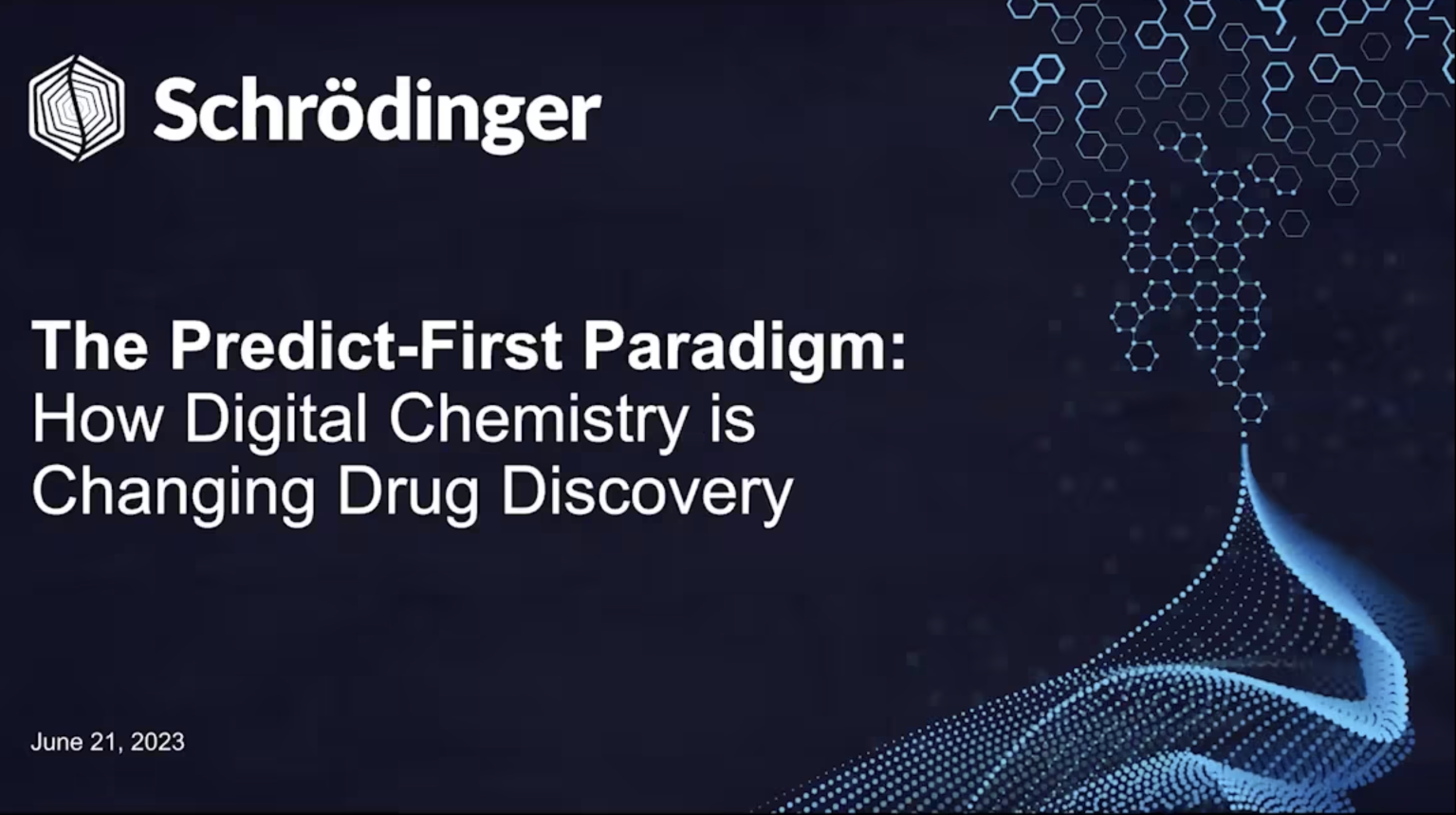
The Predict-First Paradigm: How Digital Chemistry is Changing Drug Discovery
Speakers
Eugene Hickey, Senior Research Leader
Alice Hooper, Senior Scientist
Wade Miller, Senior Scientist
Olivia Lynes, Strategic Deployment Manager
Abstract
Drug discovery chemists often ask two common questions: “What is the most efficient way to test my hypothesis?” and “How can I iterate on my ideas quickly?”
Digital chemistry offers a modern paradigm for answering these questions by enabling rapid in silico testing of design ideas using highly accurate digital assays of key properties, accessible across whole project teams. This shift from design strategies based largely on experimental trial and error towards a ‘predict-first’ approach to drug discovery allows teams to dramatically expand the pool of molecules that can be explored and results in a highly interactive and fully in silico design-make-test-analyze (DMTA) cycle. Chemists are empowered to test hypotheses through predictive modeling and iteratively improve designs prior to compound synthesis. Teams can confidently spend time and energy exploring new, unknown, and often more complex designs while sending only the top performing molecules for synthesis.
In this webinar, we will walk through the digital chemistry strategy used by Schrödinger’s Therapeutics Group, which has led to several successful clinical-stage drug candidates. We will demonstrate how this strategy is based in LiveDesign, Schrödinger’s cloud-native, collaborative enterprise informatics platform, which empowers teams to design, computationally assess, and prioritize new compounds together in real-time.
Key Learning Objectives:
- Predict properties: Understand how computationally-guided molecular design and a predict-first strategy can accelerate and improve your small molecule drug discovery process
- Centralize technology: See how Schrödinger scientists used a digital chemistry platform to enhance crowdsourced ideation and team collaboration
- Overcome collaboration hurdles: Learn how a centralized platform for molecular design and discovery can increase project efficiency by securely and easily sharing data with internal and external CRO partners